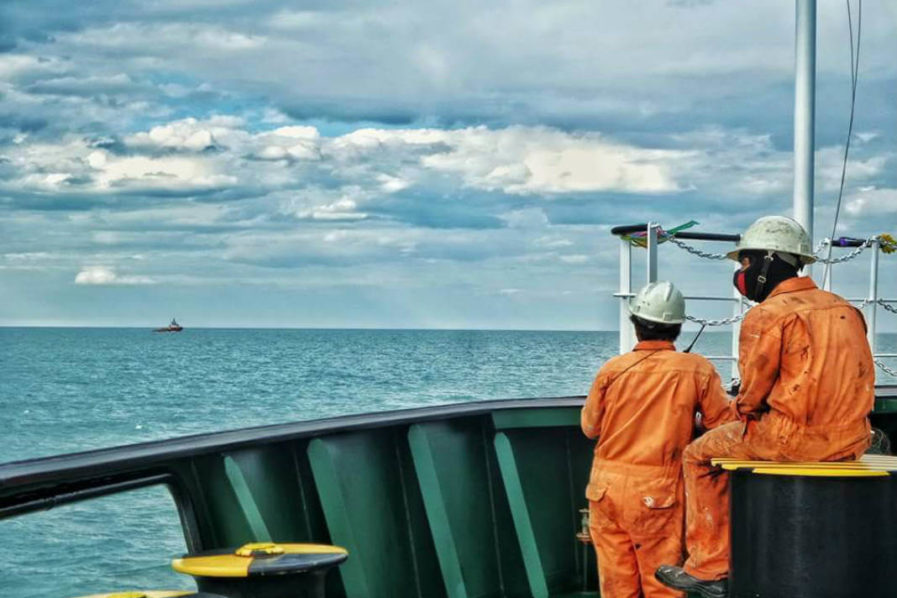
As the global maritime sector transforms, industry leaders have emphasised the technological readiness of seafarers, both globally and in Nigeria, to navigate the dual challenges of decarbonisation and digitalisation in the shipping industry.
They said with the International Maritime Organisation’s (IMO) 2030 carbon emissions reduction deadline looming, the need for immediate action on seafarer training on advanced technologies to bridge skills gaps for the shift, has never been more critical.
The industry is already grappling with a growing demand for qualified seafarers with the International Chamber of Shipping (ICS) reporting there are currently 1.89 million seafarers employed on merchant ships globally
During the Global Maritime Environmental Congress (GMEC) in Hamburg, the Regional Manager, North Europe for DNV, Tuva Flagstad-Andersen, presented findings from a study, titled: “Future of Seafarers 2030: A Decade of Transformations, which highlighted the complexities seafarers are expected to face in adapting to new vessels and technologies in the coming years.
Flagstad-Andersen pointed out that seafarers face significant challenges in adapting to new technologies and vessels, stressing that closing skills gaps must be a top priority as the industry transitions to a greener future.
The Chief Commercial Officer of Ocean Technologies Group, Raal Harris, stressed the need for early intervention on training gaps. Harris warned that the rapid pace of digitalisation and decarbonisation is outpacing the industry’s ability to train its workforce, potentially leading to increased pressures.
These global concerns resonated strongly in Nigeria, where experts caution that the country’s seafarers must be prepared to seize opportunities in the era of green shipping.
Former president of the Nigerian Merchant Navy Officers and Water Transporters Senior Staff Association (NMNOWTSSA), Matthew Alalade, stressed that Nigerian maritime training institutions must step up their efforts to incorporate decarbonisation technologies into their curriculum. He acknowledged that Nigerian seafarers are some of the best globally as many have already embraced decarbonisation technologies while working abroad.
Alalade said there is a need to provide further training domestically so that they can participate fully in this opportunity while highlighting the need for local institutions to ramp up training programmes.
The Chief Executive Officer and co-founder of Orca AI, Yarden Gross, highlighted the challenges of integrating new technology onboard. He cautioned that while technology is critical to the future of shipping, its success depends on effective onboarding and training.
“You can have great technology, but if you don’t know how to implement it correctly, provide the right training to both the office and officer, then the adoption takes much longer,” he said.
Although, the NLNG Shipping and Marine Services Limited (NSML) is already taking steps to train and equip local seafarers with the updated technology in preparation for the new era of environmentally friendly shipping, through its Maritime Centre of Excellence (MCOE) in Nigeria.
The Managing Director, NSML, Abdulkadir Ahmed, underscored the importance of continuous training to equip seafarers for the industry’s future. Ahmed said as the global shipping industry faces rapid technological advancements and challenges such as decarbonisation, NSML’s commitment to continuous training ensures that its workforce remains capable of navigating the changes.
He said the rapid evolution of the industry demands constant learning and adaptation, adding that continuous certification and recertification processes are crucial in ensuring seafarers are well-prepared to manage vessels safely and efficiently in an era of decarbonisation.






